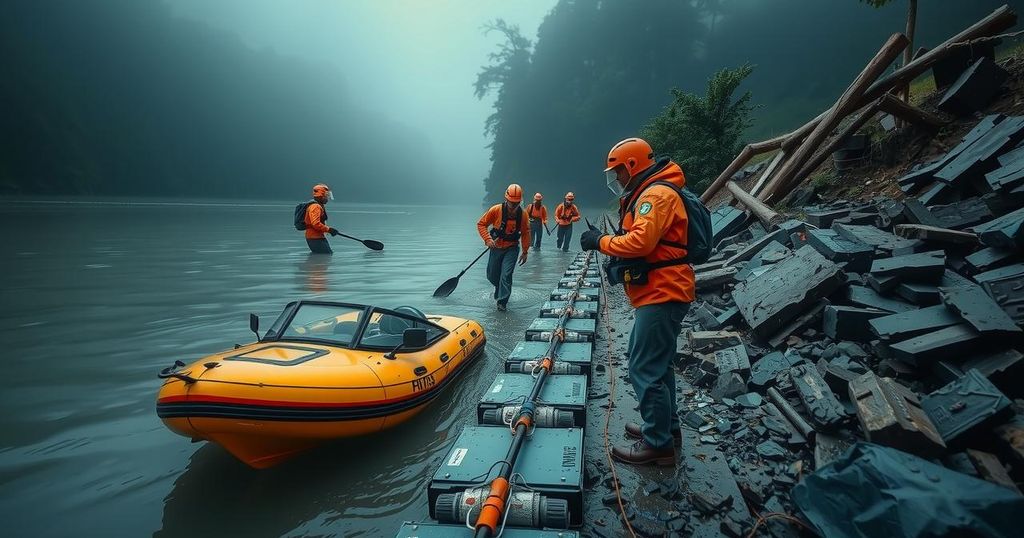Spain is currently facing the aftermath of unprecedented flooding that has claimed at least 95 lives, primarily in Valencia, where extensive damage has occurred. Search and rescue operations are ongoing as authorities recover bodies and assist victims. Criticism has emerged over the timing of emergency warnings, and experts are linking the severity of the flooding to climate change.
In the aftermath of catastrophic flooding that has claimed at least 95 lives across Spain, search and rescue operations are underway to locate the missing and recover victims. The disaster, described as the worst natural calamity in the country this century, primarily impacted the Valencia region where numerous villages suffered extensive damage. Survivors have reported scenes reminiscent of hurricane devastation, with streets strewn with wrecked vehicles, debris, and mud, particularly in the suburb of Barrio de la Torre, Valencia. According to reports, many areas saw sudden and powerful flash floods that transformed once quiet streets into torrents, sweeping away cars and trapping residents in their homes. Emergency services, including over one thousand military personnel, have joined local responders, successfully rescuing approximately 110 people and recovering several bodies. As the Spanish government declares a three-day mourning period, Prime Minister Pedro Sánchez is traveling to the affected areas to assess the situation. Unfortunately, the storm’s ferocity has left thousands without essential services, and the region remains partially isolated due to damaged infrastructure, including blocked roads and disrupted train services. There are growing concerns regarding the timeliness of emergency warnings, as critics suggest that flood alerts were only issued after the flooding had already begun in some regions, which may have hindered rescue efforts. Meteorological experts are attributing the severity of this flooding event to climate change, which has increasingly exposed the Mediterranean to severe weather patterns, making such devastating storms more frequent and intense.
This article discusses the severe flooding that struck Spain, particularly focusing on the Valencia region, as of the end of October 2024. The floods resulted from heavy rainfall, described as the “flood of the century,” and led to widespread devastation, loss of life, and critical infrastructure damage. The natural disaster necessitated extensive search and rescue operations, while raising questions about the adequacy of emergency responses and the implications of climate change on weather patterns in the region. Given historical trends, such extreme weather events are becoming more common in Spain, prompting discussions about preventive measures.
In conclusion, the tragic floods in Spain underscore the urgent need for improved disaster preparedness and response strategies in the face of increasingly severe weather patterns linked to climate change. The loss of life and widespread destruction highlight the vulnerability of communities to natural disasters, emphasizing the importance of timely communication and effective emergency planning. The government’s response and the lessons learned from this event will be critical in shaping future strategies to mitigate the impact of such disasters.
Original Source: apnews.com






